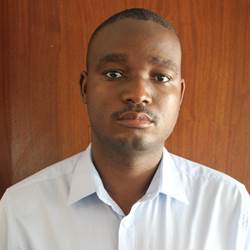To save the planet and all life in it, the world deserves a climate just transition
By Dr Henri-Count Evans

By Dr Henri-Count Evans


COP26 comes against the backdrop of dire warnings about the health of our planet, as signalled by the Intergovernmental Panel on Climate Change’s (IPCC) sixth assessment report released in August. This latest report unequivocally shows that humans are to blame for the climate crisis. There is no room for denialism and scepticism. The science is clear.
The solution to addressing the climate crisis lies with global leadership, which must take drastic actions to cut or eliminate greenhouse gas emissions. This is a call that requires all of us to rethink our ways of life and imagine alternatives, perhaps with less capitalistic-based consumption and luxury.
It is well known that a rise in temperature of 1.5oc or more will make life on Earth far more difficult and compound the plethora of problems we already face. At COP26, one of the key objectives will be to reach an agreement on the measures needed to reduce emissions, in a way that prevents catastrophic warming beyond this threshold.
This reduction is much more important for our planet’s most at-risk societies, such as indigenous peoples, small island nations, and communities across least developed countries. Climate impacts are unequal – poor nations are already suffering more than richer ones, while small island nations face the possibility of extinction. Meanwhile, temperature increases across most African countries are causing droughts and exacerbating poverty in already fragile societies.

Climate change: a question of justice
Climate change and its catastrophic impacts have become a form of injustice which robs people of their freedom to choose and live their preferred ways of life.
Calls have already been made for richer countries to provide adaptation funding to help poorer countries address vulnerability and strengthen livelihoods. But as the world goes to COP26, one is reminded that climate adaptation finance remains a thorny issue: while rich countries have promised to provide $100 billion in climate funding each year, they have yet to deliver on this pledge.
Another contentious issue at COP26 will be Article 6 in the Paris Agreement, which provides for cooperative agreements between nations to engage in market-led mechanisms for emission reductions. In reality, market-led climate mitigation has not yielded significant reductions since the operationalisation of the Kyoto Protocol in 2005. Initiatives such as the Clean Development Mechanism (CDM) and the European Union’s Emissions Trading Scheme (ETS) have actually given incentives to polluters, rather than making them responsible for their environmental impact. The Carbon Market Watch has provided useful case studies on the harm caused by the clean development mechanism and the emissions trading scheme.
Numerous CDM projects have resulted in the development of massive wind, water, and solar energy projects across the world, but these often benefit multinational corporations at the expense of local peoples. For example, the displacement of indigenous communities to accommodate green projects and mandated forest management strategies can lead to the loss of local livelihoods. This is again another form of injustice, and we must realise that climate solutions anchored in market principles can often worsen the living conditions of the poor.
Looking back to 2015, the United Nations adopted the Sustainable Development Goals (SDGs) with an underlying philosophy to leave no one behind. Today, worsening climate impacts coupled with little to resources for adaptation mean that the poor will surely be left behind. At COP26, global leaders must agree on mechanisms to ensure greater ambition on climate finance, particularly for supporting vulnerable communities to adapt to climate change.
Towards a just society
Climate change has largely been caused by humanity’s lack of respect towards nature, which is opened for endless exploitation. In Glasgow this November, world leaders must step up and reach a deal which charters a new way of life – one that aspires towards environmental justice, which does not destroy our forests nor pollute our rivers and oceans. A way of life which does not overconsume to satisfy human appetites, and which has a mutually respectful relationship with nature.
We must do this for our planet – our home.